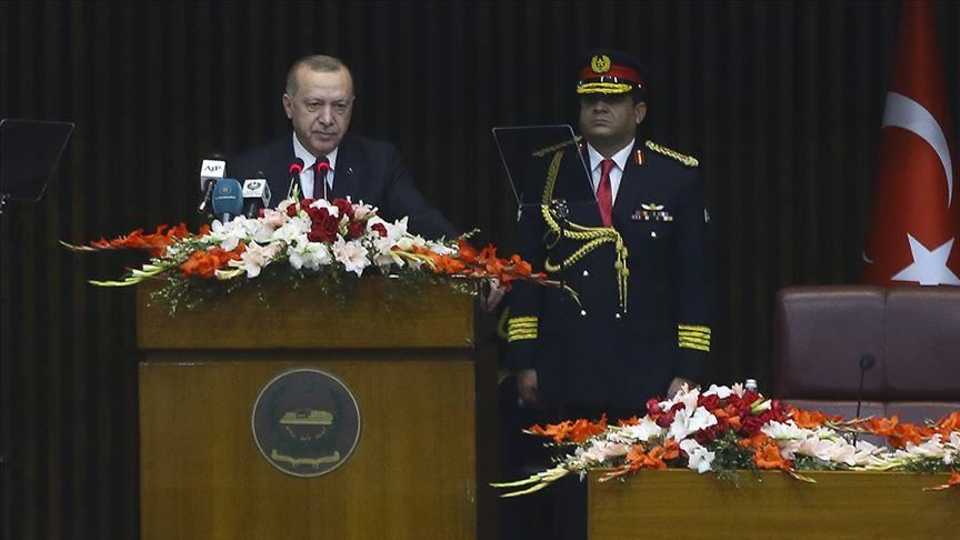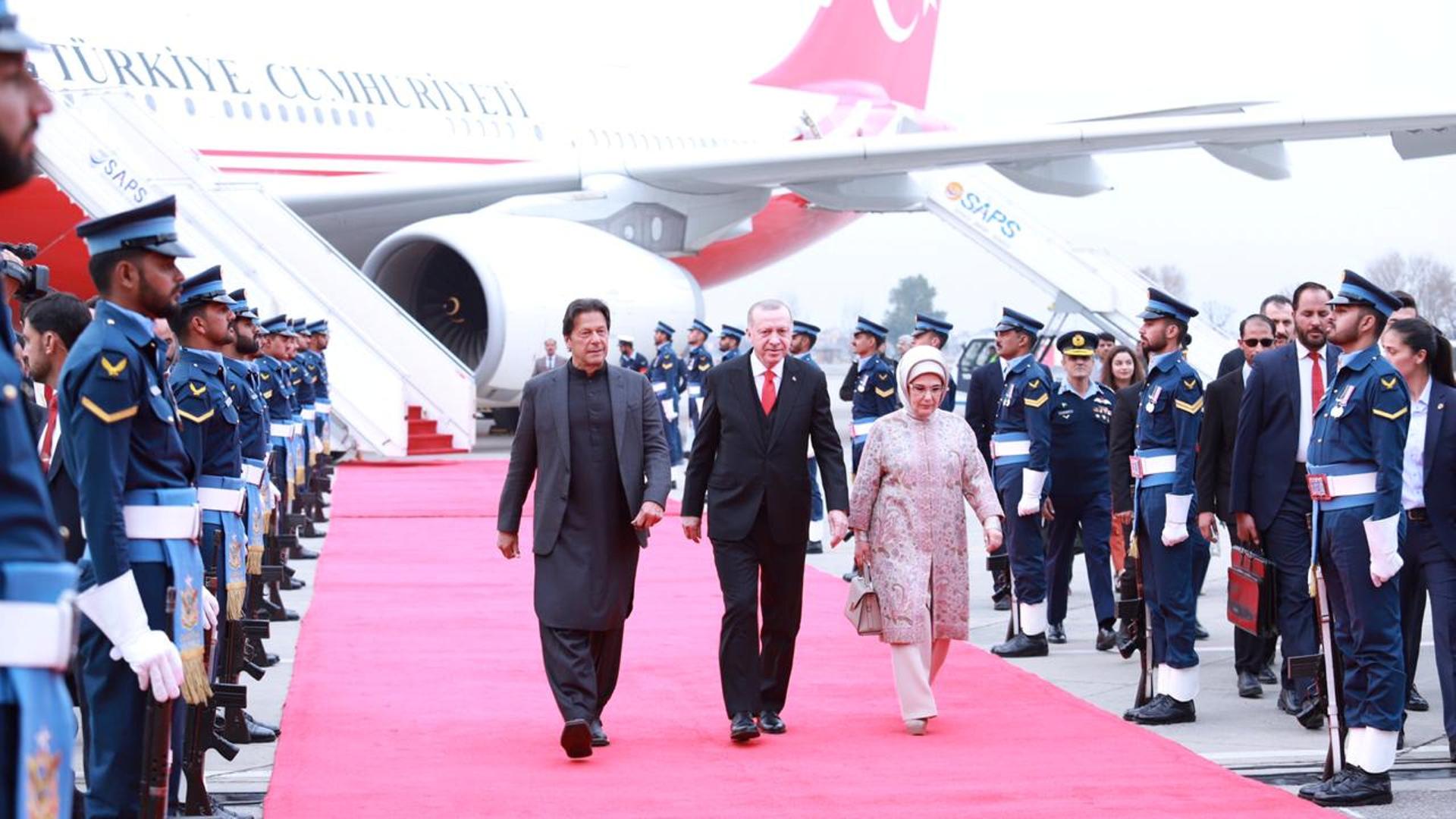Turkish President Recep Tayyip Erdogan arrived in Pakistan’s capital Islamabad Thursday for his two-day visit.
Accompanied by a big crowd of Turkish businessmen, Erdogan’s visit aims to transform the historic brotherly relations between two countries into a strong concrete economic alliance.
The high-level delegations comprising of cabinet members and senior government officials and leading businessmen will be exploring new opportunities and finalising several agreements.
Erdogan and his Pakistani counterpart President Imran Khan co-chaired the sixth session of the Pakistan-Turkey High-Level Strategic Cooperation Council.
Khan said the council meeting is one of the most important symbols of the friendship between two nations.
“We have deliberated our relationship in detail during the council meeting,” Khan said, adding that the 13 memorandums of understanding (MOU) signed by both parties is an indication of “how important the relations between us are”.

Ranging from tourism to security, the MoUs also include the cooperation between Pakistan state-owned PTV, Radio Pakistan and Turkey’s state broadcaster Turkish Radio and Television (TRT).
The Pak-Turk Military Consultative Group was established in 1988 aiming to strengthen military relations between the two countries. However, as ties improved, the scope of cooperation expanded and took on a new name, the High-Level Strategic Cooperation Council (HLSCC).
Facing US sanctions on its army in the 1990s, Pakistan sought Turkish help to upgrade and modernise its military equipment including its F-16s.
Over the past two years, the two countries have signed mega defence pacts, making Turkey the second-largest arms supplier to Pakistan after China.
Most notably, in 2018, Pakistan purchased $1.5 billion worth of 30 Turkish-made T-129 attack helicopters.
As the military ties grew, both countries enhanced their economic partnership in various fields. Therefore, seven joint groups work under the council to improve ties in trade and investment, the energy sector, banking and finance, transport and communication, tourism and culture and education and political coordination.
It marks the fourth visit by Erdogan to Pakistan as Turkey’s prime minister and president.
However, despite the increasingly close relationship between the two countries, Islamabad is expecting “much more” out of the visit compared to previous encounters, according to Abdul Razzak Dawood, the advisor for Commerce, Textile, Industry and Production and Investment of Pakistan.
“What I am expecting is that we already have the presence of Turkish companies here. But that’s not enough. We want these numbers double, even triple,” Dawood said.
The current trade volume between the two countries is $900 million.
The Pakistani adviser continued: “We want to increase cooperation with Turkish companies to benefit from their expertise in different sectors, mainly construction, tourism, engineering, food processing, chemicals, and information technology.”
Turkey also supports Pakistan in the Financial Action Task Force (FATF), which, if it blacklists Pakistan, could significantly limit Islamabad’s economic ability and isolate the country.
The ongoing landmark projects are aimed to boost the trade volume between Turkey and Pakistan.
In April 2019, Turkey, Iran and Pakistan signed the International Road Transport agreement. The deal will open a direct Istanbul-Tehran-Islamabad trade corridor with smooth customs control, linking Turkey, Central Asia and Europe.
Moreover, Pakistan’s Imran Khan recently said he will invite Turkey to involve China-Pakistan Economic Corridor in a bid to stretch the implementation of megaprojects across the countries.
Turkey’s new consulate, under construction in Karachi, the largest city and main port of Pakistan, will be Turkey’s largest consulate anywhere in the world.
As Pakistan expects more investment, Turkey aims to diversify its economic ties across the countries. This mutual desire to boost economic cooperation has the potential to bring a new dimension to geopolitics in Asia.










Discussion about this post